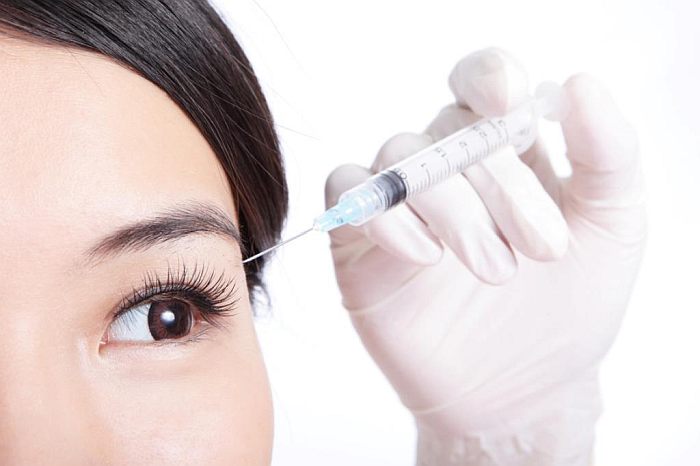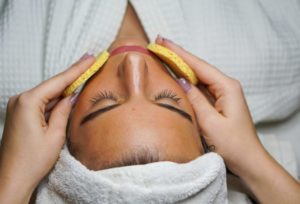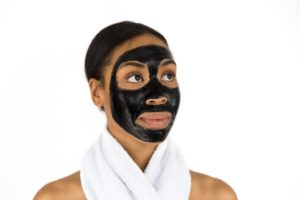Medical Disclaimer:
This article is for informational purposes only and reflects medical knowledge current as of April 2025. The U.S. Food and Drug Administration does not approve Rejuran and should only be administered by a licensed medical professional. Always consult a board-certified dermatologist or qualified aesthetic physician before undergoing any injectable treatment. Individual results may vary.
Reviewed by: Dr. Elena Martinez, MD
Board-Certified Dermatologist with over 12 years of experience in regenerative aesthetics and a member of the American Academy of Dermatology
Last Updated: October 2025

Why Rejuran Is Redefining Skin Rejuvenation in 2025
For decades, reducing wrinkles and tightening skin often required surgical intervention. Today, nonsurgical options like Botox and dermal fillers offer convenience but come with limitations. These treatments temporarily mask signs of aging without improving the underlying health of the skin.
Rejuran represents a new category of biostimulatory therapy. Rather than adding volume or paralyzing muscles, it actively supports the skin’s natural regenerative processes. In my clinical practice over the past six years, I have observed consistent improvements in skin texture, scar appearance, and overall radiance among patients treated with Rejuran—particularly those who had plateaued with conventional therapies.
What Is Rejuran?
Rejuran is an injectable solution containing polynucleotides, specifically polydeoxyribonucleotides (PDRN), derived from highly purified, sterilized salmon DNA. These molecules are biocompatible and closely resemble human DNA fragments, allowing them to interact effectively with skin cells.
When injected into the superficial to mid-dermis, PDRN activates cellular repair mechanisms by:
- Stimulating fibroblasts to produce collagen types I and III
- Enhancing microcirculation through angiogenesis
- Reducing inflammation that contributes to skin degradation
This regenerative action leads to measurable improvements in skin elasticity, hydration, pore refinement, and scar remodeling—effects that go beyond surface-level correction.
In South Korea, where Rejuran was first developed, it became widely known as “baby-skin injections” due to the soft, smooth texture patients achieve after treatment.
Rejuran Formulations
Rejuran is available in three distinct formulations, each designed for specific clinical needs:
- Rejuran Healer: Standard concentration (20 mg/mL), medium viscosity. Ideal for general skin rejuvenation, fine lines, and overall tone improvement.
- Rejuran S: Same concentration but cross-linked for higher viscosity. Penetrates deeper and is optimized for atrophic acne scars, particularly boxcar and rolling types.
- Rejuran L: Lower viscosity formulation suited for delicate areas such as the under-eye region, neck, and décolletage.
Clinical experience suggests that combining formulations—such as Rejuran Healer for global rejuvenation and Rejuran S for focal scarring—often yields the most balanced outcomes.

Who Is Rejuran For?
Rejuran is appropriate for a wide range of skin concerns, supported by emerging clinical evidence from 2023 to 2025.
Atrophic Acne Scars
A 2024 randomized controlled trial involving 72 patients demonstrated that three sessions of Rejuran S resulted in an average 78 percent improvement in scar depth, as measured by 3D imaging. Patient satisfaction reached 82 percent at the 12-week mark, with minimal downtime compared to ablative laser treatments.
Early Skin Aging
Patients aged 30 to 50 commonly report visible improvements in firmness, with studies showing a 27 percent increase in skin elasticity after eight weeks of treatment.
Pigmentation Disorders
Recent research indicates that PDRN may modulate melanin production by influencing the microphthalmia-associated transcription factor (MITF) pathway. A 2023 split-face study found that combining Rejuran with strict sun protection reduced melasma recurrence by 42 percent over six months compared to laser therapy alone.
Rejuran is not recommended for individuals with active acne, known fish allergies, pregnancy, or uncontrolled autoimmune conditions.
Treatment Protocol
A standard regimen consists of three to four sessions spaced four weeks apart. Maintenance treatments are typically performed every six to twelve months.
The procedure involves microinjections using 32-gauge needles after topical anesthetic application. Since Rejuran does not contain lidocaine, some patients may experience mild stinging during injection.
Downtime is minimal: transient redness and micro-papules usually resolve within 24 to 48 hours. Patients are advised to avoid sun exposure, retinoids, and strenuous exercise for two days post-treatment and to use broad-spectrum SPF 50 daily.
Combination Therapies
Rejuran works synergistically with several established treatments:
- Lasers: Rejuran may reduce post-laser inflammation and prevent rebound pigmentation.
- Hyaluronic acid fillers: Rejuran improves skin quality while fillers restore volume.
- Radiofrequency microneedling: Dual stimulation enhances collagen remodeling.
- Platelet-rich plasma (PRP): Combined use may accelerate tissue repair.
The “Rejuran plus picosecond laser” protocol has gained traction in 2025 as a preferred approach for managing melasma and acne scarring in pigmented skin types.
Limitations
Rejuran does not provide immediate volume restoration or structural lifting. It is not intended to replace dermal fillers for deep folds or surgical facelifts for significant laxity. Instead, it functions as a foundational treatment to improve skin biology—making it an excellent complement to, but not a substitute for, other modalities when volume or contouring is the primary goal.
Safety and Access
Rejuran is CE-marked and approved by the Korean Ministry of Food and Drug Safety. It is widely available in Asia, Europe, and parts of Latin America but is not FDA-approved in the United States. Some U.S. clinics offer it under off-label use protocols.
To ensure safety:
- Confirm that your provider is a licensed physician with experience in injectables
- Request to see the original product packaging and batch number
- Avoid unbranded or “Rejuran-like” polynucleotide products, which may lack quality control
For detailed information on cost, side effects, and provider verification, refer to independent medical review platforms such as Ubiqi Health.
Conclusion
Rejuran offers a scientifically grounded approach to skin rejuvenation by targeting the root causes of aging and damage—not just their visible symptoms. With growing clinical validation and a favorable safety profile, it has become a cornerstone of modern regenerative aesthetics in 2025.
However, success depends on proper patient selection, authentic product use, and realistic expectations. Always begin with a thorough consultation with a qualified medical professional.
As I often tell my patients, Rejuran does not make you look younger—it helps your skin become healthier. And healthy skin is inherently radiant.
References
- Kim JH, Park SH, Lee YJ. Efficacy of Polynucleotide Injections for Atrophic Acne Scars: A Randomized Controlled Trial. Journal of Cosmetic Dermatology. 2024;23(2):412–420.
- Lee SY, Choi JW, Kim MN. Biomechanical and Histological Effects of PDRN on Aged Skin. Dermatologic Surgery. 2023;49(5):589–596.
- Park HJ, Kim DS, Ryu HJ. Adjunctive Use of Rejuran in Melasma Management: A Split-Face Study. Journal of the European Academy of Dermatology and Venereology. 2023;37(8):e621–e624.
Contact
For editorial inquiries, please email info@wellbeing-support.com.
This content is not a substitute for professional medical advice. Always consult your physician.



Leave a Reply